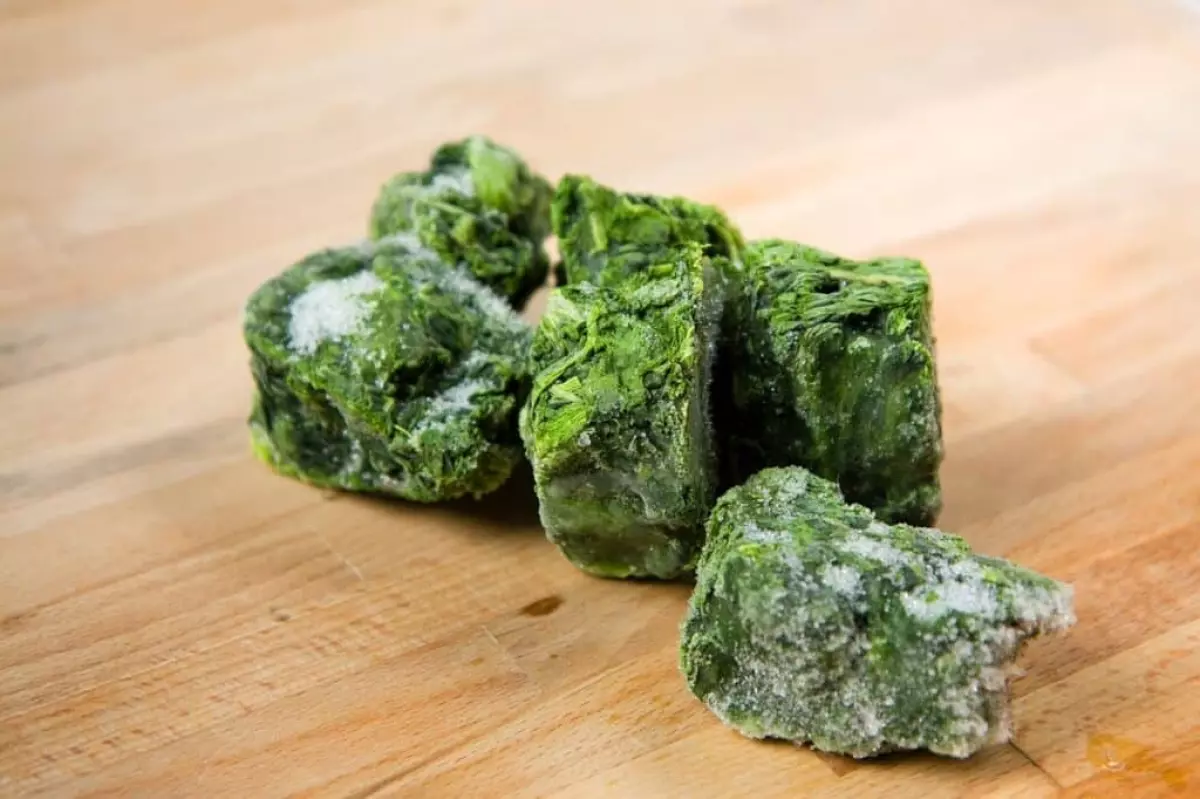Freezing food is a common method used for preservation, but have you ever wondered if frozen food actually weighs more than unfrozen food? Let's dive into the science behind it and discover the truth.
The Buoyant Force and Weight
When food is frozen and solidified, there is a change in the buoyant force of the items. This change in buoyancy causes the frozen food to feel heavier than those stored at room temperature. But why does this happen?
The answer lies in the water content of the food products. When food is frozen, the water in it expands and displaces air, increasing the food's weight. In other words, freezing causes the water to expand, making the food denser and therefore weigh more.
 Image source: AnnaM Restaurant
Image source: AnnaM Restaurant
Changing States and Density
When food is frozen, there is not only a change in weight but also a change in the product's density. The freezing process alters the state of water or other fluids in the food, resulting in a change in density. This change in density can make the frozen food heavier compared to its unfrozen counterpart.
However, it is important to note that density is not the same as weight. The term "heavier" is relative and refers to the comparison between frozen and unfrozen food. While the volume of the food may remain the same, the weight can change due to the density change caused by the states of matter.
Additionally, freezing food can also lead to changes in the environment surrounding it. For example, the air around frozen food may change to a solid state and become attached to the food, even in minute quantities. These environmental changes can also contribute to the overall weight of frozen food.
Weighing Frozen Food vs. Cooked Food
When it comes to weighing food, it is important to distinguish between frozen and cooked food. Food is typically weighed when it is frozen and not when it is cooked. The reasoning behind this is that recipes already provide specific quantities for each ingredient, so measuring the weight of the cooked food would be redundant.
Furthermore, freezing food is often done to preserve it for later use or sale. By weighing the food in its frozen state, specific quantities can be determined, ensuring consistency for consumers. For example, when meat is transformed into brawn, it is weighed in specific quantities to provide accurate information to customers.
Accuracy of Calorie Measurements
If you're conscious of your calorie intake, you may be wondering if the calorie values listed on frozen food are accurate. It is important to note that relying solely on frozen food or fast food for your meals may result in consuming more calories than stated.
The US Food and Drug Administration (FDA) allows a 20 percent margin for error in calorie values for processed packaged food and restaurant meals. This means that the stated calorie values may differ from the actual ones by up to 20 percent.
To account for this margin of error, it is advisable to plan your meals with some allowance. Always check the package for the exact number of calories, as additional toppings or ingredients may not be included in the calorie count. Be aware that many restaurants may not disclose the calorie content of their frozen products, and even if they do, it may not always be accurate.
Precautions Against Mold
Properly frozen food should not go bad and pose health risks if the freezer is in good working condition. However, neglecting cleanliness can lead to the growth of certain molds and bacteria, even at cold temperatures.
To prevent your frozen food from becoming moldy, regular cleaning of your freezer and refrigerator is essential. Most food products come with instructions on how to store them to prevent contamination. Following these instructions, including optimal storage temperature and recommended freezing periods, will help keep your food safe.
Consuming moldy food can be harmful as it may contain harmful bacteria and mycotoxins, which can lead to food poisoning and even cancer in some cases. Therefore, it is important not to freeze your food for too long. Aim to purchase food products that can last for about three months to retain their quality and taste.
Conclusion
In conclusion, freezing food is a practical method for preserving it and ensuring its longevity. Frozen food may weigh more due to water retention and changes in density. Weighing frozen food before cooking helps maintain consistency in quantity for consumers.
When relying on frozen food for calorie counting, keep in mind the allowed margin of error set by the FDA. Practice good hygiene in your freezer and refrigerator to prevent mold growth and food contamination.
Remember, freezing food is a useful tool, but proper handling, cleaning, and adherence to recommended storage instructions are vital for maintaining the safety and quality of your frozen food.

















